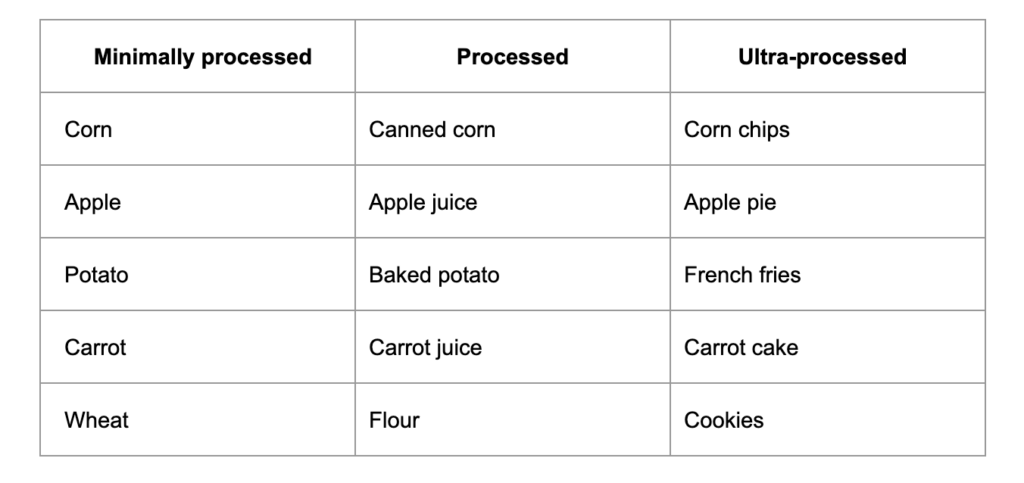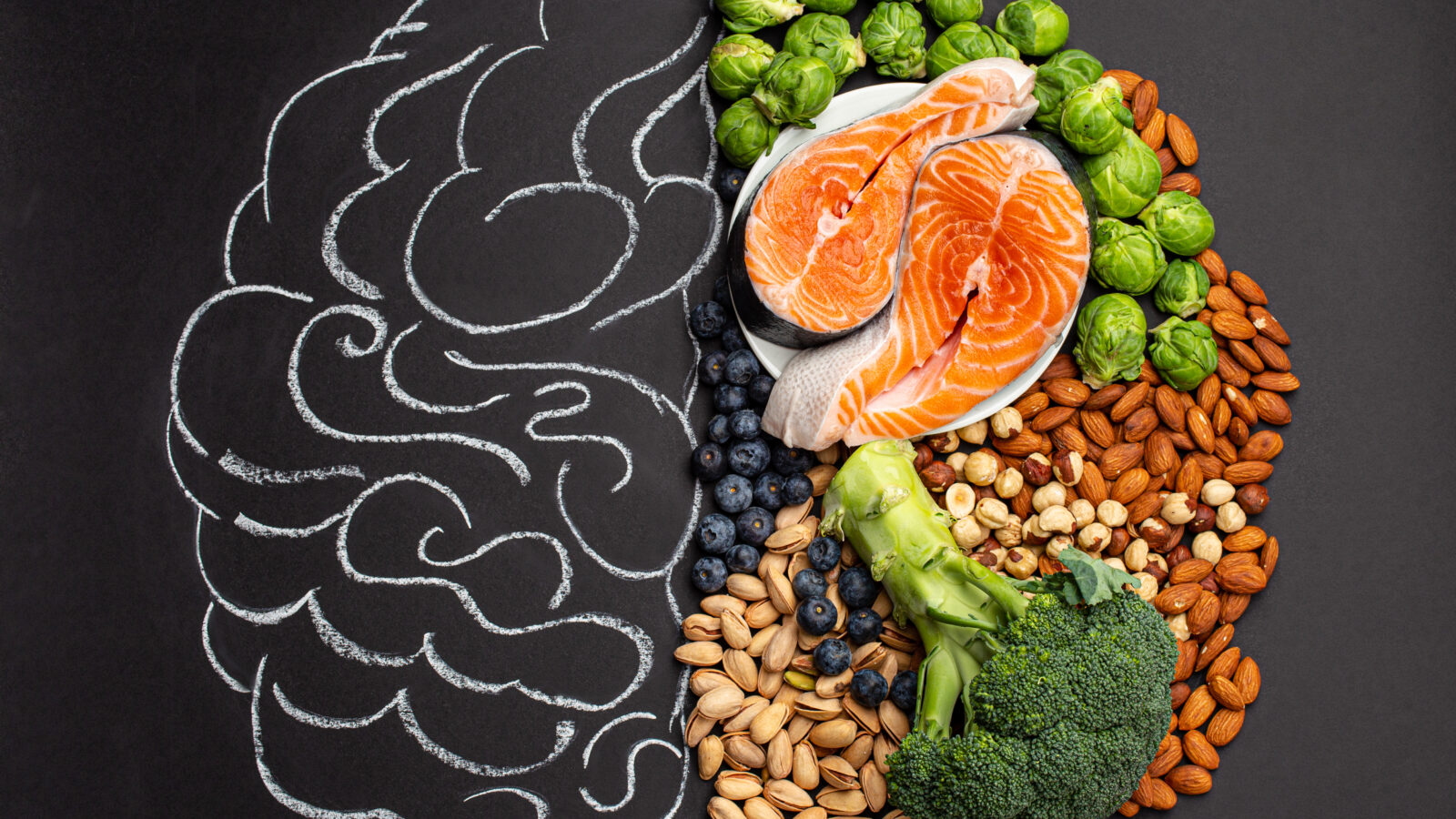As I stroll down the aisles in my local grocery store, I’m met with endless claims of health and wellness in bold lettering on food packages. There are some oldies, like “heart healthy” and “immune-boosting,” and there are some new ones, like “sleep-inducing cookies” and fruit juices that “promote brain development.” The labels are intriguing; they suck you in with their ambitious promises and may even motivate you to pay a hefty premium. But before yielding to their claims, take a quick peek at the ingredients and you may notice that they’re a wolf in sheep’s clothing – which is to say, there’s nothing “premium” about them. In fact, many of these items are simply the ultra-processed foods we’ve grown up with, rebranded to fit the latest trends and appease our desires for gut health, brain health, better sleep, etc.
Innovations in technology don’t always make us better – and that’s particularly apparent when we look at food. In the late 2000s, Brazilian scientist Dr. Carlos Monteiro noticed a strange pattern in his country: while sales for sugar and oil were declining, rates of Type 2 diabetes and obesity were going up (with obesity doubling between 2002 and 2013, going from 7.5% to 17.5% of the population). Upon further investigation of the data, Monteiro’s team at the University of São Paulo found that while people were buying less sugar, they were eating far more of it – in the form of packaged foods. This insight led to the countrywide adoption of some new dietary guidelines – controversial at the time – like “avoiding ultra-processed foods,” “planning time to make food and eating important in your life,” and, notably, “being wary of food advertising and marketing.”
Brazil’s guidelines may have seemed radical, but with the exponential rise of ultra-processed foods, often hidden behind claims of being “all natural” (a term that is not regulated by the FDA), the U.S. and others may soon find that something similar to Brazil’s guidelines is warranted here as well. A study published in The BMJ found that ultra-processed foods account for over half of all calories consumed in the U.S., and contribute nearly 90% of all added sugars consumed. Another study, also published in The BMJ, looked at the dietary patterns of over 100,000 French adults over a 5 year period, and found that those with higher consumption of ultra-processed foods also had a higher risk of cardiovascular disease, coronary heart disease, and cerebrovascular disease. And large scale studies from France, Brazil, the US and Spain over the past decade found a correlation between higher consumption of ultra-processed foods and a wide range of conditions, including cardiovascular and metabolic diseases, cancer, depression, asthma, gastrointestinal disorders, and all-cause mortality.
While the link to health is clear, researchers are still questioning what exactly causes this category of food to make us sick. Some researchers theorize that ultra-processed foods feature an irresistible combination of fat, sugar, and salt that propels us to overeat. But others have proposed that it’s simply the nature of being highly processed that makes them unhealthy. As a skeptic of the latter theory, Dr. Kevin Hall, Integrative Physiology Section Chief at the NIH, designed a randomized control trial: 20 participants were fed either an ultra-processed diet (e.g., canned beef ravioli) or minimally processed diet (e.g., cod with a baked potato and steamed broccoli) for 2 weeks, then switched to the other diet for another 2 weeks. Both diets were equal in calories, sugar, fat, fiber, and macronutrients, and both groups were told to eat as much or as little as they desired. The results dispelled Hall’s skepticism: “I had sort of expected that … there wouldn’t be any difference,” he stated. “But in fact, what we saw was that when they were on the ultra-processed diet, they were eating about 500 calories per day more than when they were on the unprocessed diet, and they were gaining weight and gaining body fat.”
Sometimes, we have to look back to move forward. Nutritional science has come a long way since the first discovery of a vitamin in 1913. But more often than not, food trends are detached from nutritional science, tethered more to our ever-changing cravings and new TikTok trends than to new discoveries in nutritional health. So until our food industry and our governments decide to take action, keep a few things in mind as you walk down those well-lit grocery aisles: minimally processed and whole foods don’t need health claims. If a particular claim entices you, read the ingredients before throwing it in your cart. And “if you really have no idea what some of those ingredients are,” advises Christopher Gardner, director of nutrition studies at Stanford University, “it probably went too far.” As an example, here’s a great chart showing how ordinary food can go from minimally processed to ultra-processed.
How to identify ultra-processed foods

Source: Harvard Medical School


